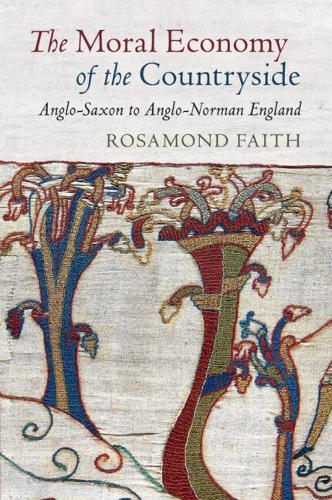Full Product Details
Author: Rosamond Faith
Publisher: Cambridge University Press
Imprint: Cambridge University Press
Dimensions:
Width: 15.40cm
, Height: 1.40cm
, Length: 22.80cm
Weight: 0.370kg
ISBN: 9781108720069
ISBN 10: 1108720064
Pages: 244
Publication Date: 31 October 2019
Audience:
General/trade
,
Professional and scholarly
,
General
,
Professional & Vocational
Format: Paperback
Publisher's Status: Active
Availability: Manufactured on demand

We will order this item for you from a manufactured on demand supplier.
Reviews
In the third of a sequence of magisterial and thought provoking books about early English rural society, Ros Faith forces us to face the problem of how lordship managed to establish itself in Anglo-Saxon England at all. Her profound and radical understanding of how peasant life works on the ground shines through at every point. Everyone who is interested in English society before 1200, or indeed later, will have to read this book. Chris Wickham, University of Oxford Representing the fruit of over five decades' work on the medieval peasantry, this book takes us closer to the lived world of the Anglo-Saxon peasantry than I would have ever thought possible. It revises traditional wisdom on a host of important subjects, from the origins of feudalism to the impact on the Norman Conquest, and will be the go-to book on early English rural society and life for many years to come. Levi Roach, University of Exeter
'In the third of a sequence of magisterial and thought provoking books about early English rural society, Rosamond Faith forces us to face the problem of how lordship managed to establish itself in Anglo-Saxon England at all. Her profound and radical understanding of how peasant life works on the ground shines through at every point. Everyone who is interested in English society before 1200, or indeed later, will have to read this book.' Chris Wickham, University of Oxford 'Representing the fruit of over five decades' work on the medieval peasantry, this book takes us closer to the lived world of the Anglo-Saxon peasantry than I would have ever thought possible. It revises traditional wisdom on a host of important subjects, from the origins of feudalism to the impact on the Norman Conquest, and will be the go-to book on early English rural society and life for many years to come.' Levi Roach, University of Exeter 'Like her previous works, this is a dynamic contribution to the study of an often neglected but vital segment of society. Though attempting, as she does, to get into 'the hearts and minds' of the English peasantry is always fated to be an uphill struggle given the nature of the surviving sources … this volume will become a valuable touchstone for future scholars studying medieval social relations.' Stuart Pracy, Agricultural History Review
Author Information
Rosamond Faith is author of The English Peasantry and the Growth of Lordship (1997) and co-author, with Debby Banham, of Anglo-Saxon Farms and Farming (2014). Her research has focused on peasant families and farms in medieval Provence and England, and on the nature of lordship, peasant resistance and how medieval people managed the different landscapes they lived in.




